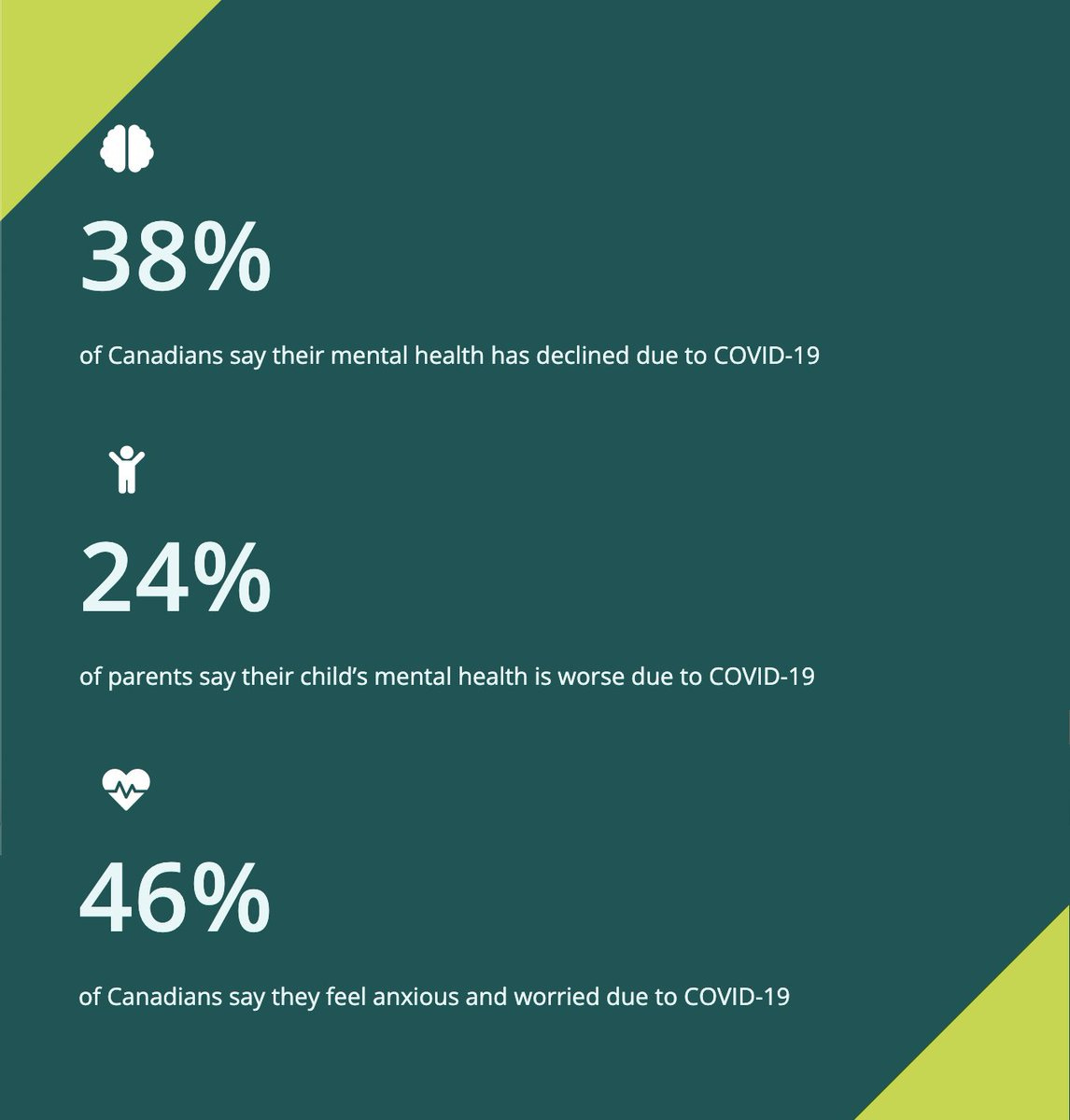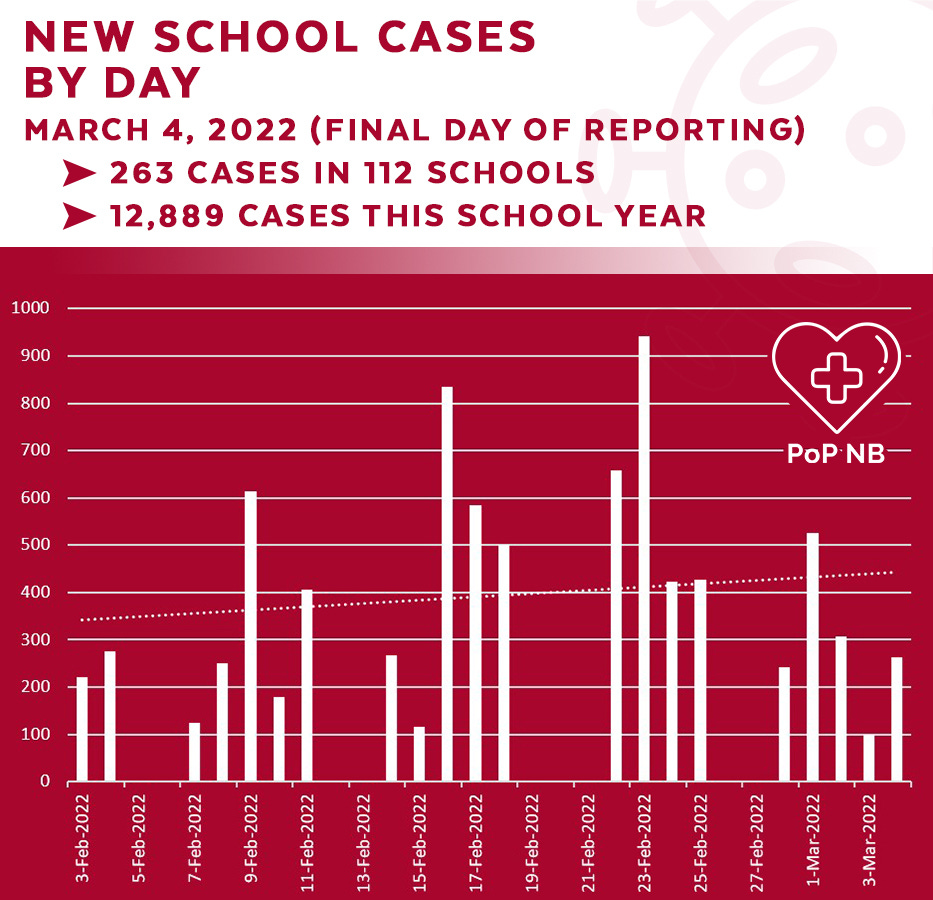The Deception of Balance
Editorial unpacking CMOH Misinformation (First published March 17, 2022)
Time to dive into Chief Medical Officer of Health, Jennifer Russell's statements in this week's interview on Information Morning Fredericton. I thank the sainthood-bound interviewers Vanessa Blanch and Jeanne Armstrong for doing the good work of trying to see through GNB’s vague half answers.
I colour code these point form notes like so:
🔵 = CBC 🔴 = Jennifer Russell 🟢 = my own angry thoughts
🔵 CBC: "Why is this the right time?"
🔴 JR: "Many reasons... including the balance that we've always tried to strike with our public health measures and covid and all the negative impacts in terms of mental health. This conversation has shifted very much to the negative impacts…and there is recent data that was published…on harms to children, increased hospital admissions and emergency visits for MH issues such as self harm and substance abuse."
🟢 So here we see it begin. The public and the media has been continuously asking for data to justify the removal of all covid protections. We've received nothing. In the absence of quantifiable (read: verifiable) information, it is not surprising that CMOH pivots to unquantifiable mental health claims. While we don't know the specific study JR is citing, she mentions two sources; British Columbia and CIHI.
Let's dig...
CIHI published a study in which it states
"Surveys have found declining mental health among Canadians during the pandemic due to high levels of anxiety and loneliness, and changes to the care they were able to access."
The CIHI study makes a passing reference to the fact that "Canadians are experiencing prolonged public health measures during the COVID-19 pandemic." This is true, but the study does not state the health measures are the sole cause of declining mental health of Canadians.
In fact, the survey cited by the CIHI study suggests isolation, while a key issue, is far from the only root cause of declining mental health.
With respect to adolescents, we are aware of a pile of studies which don't exactly back up her statements. Most recently, and specific to Canada is the APA study on Canadian adolescents.
The study found that kids were stressed out during the pandemic but did not find it was due to protections. Quite the opposite. Kids were stressed out because they were worried about others. At the risk of editorializing, I'm not surprised JR doesn't recognize empathy.
The following stats from the BC CMHA form part of Russell’s restriction rhetoric. Note the "due to COVID-19" on each statistic. These impacts are due to the pandemic at large & cannot be reduced to being caused by PH measures.
Lifting protections prolongs the pandemic and worsens these impacts.
If we truly care about the mental health impacts of PH measures, we must also thoroughly quantify the mental health impacts of lifting them, and the mental health impacts of unmitigated infection and its consequences.
For a masters course on the mental health impacts of the pandemic, read Tyler Black's analysis which can be found here.
So yes… We are stressed. Kids are stressed. Covid causes a lot of that stress.
It feels insane to have to say this… removing protections doesn't remove the pandemic… it fucking prolongs it.
If JR was concerned about stress, she'd advise mitigations to end the pandemic.
And if we agree that mitigations cause stress, why do we never discuss it in the context of other stresses, such as getting sick, friends and family dying, being unable to work, or… the stress of Public Health lying to us and hiding data when they are supposed to protect us?
🔵 CBC: "Why haven't you shared information?"
🔴 JR: "I guess I'm sharing it verbally, and based on our PCR cases… and the cases in our school aged children, that's where the data is coming from in looking at the peak that has passed."
🟢 Fuck verbal. Give us the data.
PCR tests are limited to one portion of the population (50+) and specific vulnerable people, and the vast majority of cases in "school aged children" are captured in the POCT data, which apparently isn't being used to base anything on.
That's probably a good decision on their part, because in the month before March Break, there were over 10k in-school cases before parents were told to stop reporting.
This number is now unknown. The vast majority of school cases are omitted from the dashboard.
The comments about selected cohorts driving the decision making process is in line with the deceptive graphic released by public health which was discussed in the previous post.
Does it need to be said that making decisions affecting all cohorts based off of performance of one cohort is illogical? School aged kids cases decreasing (they aren't) doesn't mean anything to the population as a whole.
It's lying with statistics. Do better.
The GNB graph shows overlain case counts, hiding volume of cases. It deceptively implies lower daily cases than are recorded. We've added the red line (same scale) to show actual daily cases, artificially declining due to 1 cohort (kids) who were instructed to stop reporting.
🔴 JR: "Having that individual choice is really important."
🟢 So often it is underestimated how quickly "I'm not required to" slides into "I'm not going to."
We saw this at the beginning of the mask mandate. People didn't mask because it wasn't required.
🔴 JR: "We have 66% of the population who are fully vaccinated and boosted"
🟢 No we don’t.
🔴 JR: "When we went to the more restrictive measures in January, part of that goal was to… increase the vaccination rates… We've done a good job of that."
🟢 That is arguable (again, 51 does not equal 66).
🔴 JR: "What we know right now about transmission in schools and kids and severity of symptoms, with omicron we've passed our peak."
🟢 Conflating 'past the peak' with any sort of normal level of infection is either gaslighting or incompetence.
Past it, maybe. Over it, no fucking way.
In fact, as we can all see, cases are going back up. As for transmission in schools, they account for 37% minimum of all POCT cases in the five weeks before reporting was scrapped, as discussed here.
🔴 JR: "All I can say about other peoples' opinion is that… they don't have access to the same information that we have."
🟢 ... give us the access to the fucking information.
There are only two reasons not to.
the information isn't sound, or
the information doesn't exist.
🔴 JR: "In terms of the risks we're balancing all of that with what children need right now in school."
🟢 Children need to be safe. Universal masking help keep them and their families safe.
Equating covid risk to mask risk is ghoulish and insane.
🔵 CBC: "Masks are a low impact intervention that could maybe be helpful."
🔴 JR: "You have to balance that with the risks and the issues that have come up in younger kids. It's been very stressful on a lot of families and kids."
🟢 …
I'm going to say this one last time. Yeah, wearing a mask is stressful. My kid seems far less stressed by wearing a mask than by losing a grandparent.
In NB, dozens of kids have been hospitalized with covid. What about that stress?
What about the stress of continued disease all around them? Disease that could be mitigated by a minor, at worst, inconvenience like universal masking.
What about the stress of politicians enacting policies that demonstrate their concerns don't matter?
Jennifer Russell, what will you tell the children who bring covid home inadvertently removing a loved one from their lives forever?
What message will you have about "balance" at that point?
















The scathing remarks in green are eminently reasonable, under the circumstances. Kudos.